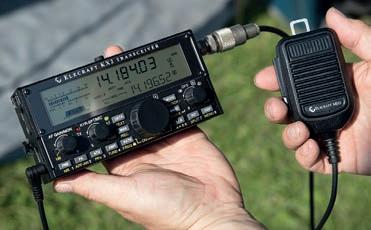
3 minute read
Telecom Infrastructure
OMRON
Telecommunication and security relays G5V-1/G5V-2
Applications
G5V-1 Relay • Telecommunication equipment • Audio-visual products • Security equipment • Building automation equipment G5V-2 Relay • Telecommunication equipment • Security equipment
The G5V-2 relay series are serving general • Conforms to FCC Part 68 requirements purpose, where cost efficiency is just as for coil to contacts. (1,500V, 10×160μs) important as characteristics such as high • Models for ambient temperatures up to dielectric strength or UL and CSA standard. 90°C added to series. The wide range of switching power from 10μA to 2A makes it ideal for security and telecommunication equipment. G5V2-RELAY • General-purpose DIL terminal layout. • Wide switching power of 10μA to 2A. Features & Benefits • Fully-sealed type Relays standardized with G5V-1 RELAY bifurcated crossbar contacts. • Ultra-miniature at 12.5×7.5×10mm • Conforms to FCC Part 68 requirements (L×W×H) for coil to contacts. (1,500 V, 10×160μs) • Wide switching power of 1mA to 1 A • High dielectric strength at 1,000 VAC • High sensitivity: 150mW nominal coil between coil and contacts, power consumption • UL and CSA standard approved. • Fully-sealed construction offering environment resistance
Panasonic
PhotoMOS® relays for telecommunication equipment
It is a wide variety of signals that are imposed upon telecommunication networks: levels range from millivolts (at microamperes) to tens of volts (at several hundred milliamperes), AC or DC and even high bit-rate signals.
Applications
• Modems • Network modules • DCS • UPS

The switches in communication circuits – which normally carry DC signals – also carry AC signals on top of the DC level when an intermittent signal is being sent. Especially the PhotoMOS® RF series with an optimized and low CxR allows high frequency switching – with a very low output capacitance at open state and a very low on resistance when switched on.
Series U I AQY221N5T 20V 180mA AQY221*V 25–40V 120–1.000mA Features & Benefits • Low CxR • Linear output characteristics • No threshold voltage • Minimum leakage current (pA) • Extremely long lifetime • Stable ON-resistance over the entire lifetime • Extremely compact design (VSSOP, SON,
SSOP, SOP, DIP) • No contact bounce • Highly resistant to shock and vibration • Flexible mounting orientation
TE Connectivity’s Axicom Relays
Reliable signal relays for telecom applications
TE’s signal relays are one of the smallest electromechanical relays fitting in many continuously shrinking customer applications and are designed for high volume applied technologies. Depending on series, they are available as 1 form A, 2 form A, 1 form C and 2 form C contact versions.

Applications
• Automotive infotainment systems (CAN) • 5G Network systems & infrastructure • Modems • Test equipment • Antenna switching • Smart thermostats • Medical solutions • Keyless entry
IM Relay
Features & Benefits • Switching current: 2/5A, voltage: 220VDC/250VAC, power: 60W/62.5VA • Slim line 10x6mm, low profile 5.65mm and min. board-space 60mm2 • Low coil power consumption: 50mW, 100mW and 140mW version available • High contact reliability up to 10.000.000 operations • Very low and stable contact resistance • THT, SMT design for reflow soldering by providing a smaller footprint option • High mechanical shock resistance up to 50g functional


P2 (V23079) Relay
Features & Benefits • 2 form C bifurcated contacts (2 changeover contacts, 2 CO) • Switching current: 2/5A, voltage: 220VDC/250VAC, power: 60W/62.5VA • Standard telecom relay (ringing and test access) • Slim line 15x7.5mm (.590x.295”) • Immersion cleanable • Very low coil power dissipation • High sensitivity for low power consumption 140mW/70mW • SMD & THT versions available • 1 coil version meets Telcordia requirement GR-1089 & FCC Part 68
D2N (V23105) Relay
Features & Benefits • 2 form C contacts (2 CO, 2 changeover contacts) • Switching current: 3A, voltage: 220VDC/250VAC • Standard DIL relay, can be mounted onto a DIL socket • Four different coil sensitivities, 150mW, 200mW, 400mW, >500mW • Surge voltage resistance meets FCC
Part 68 requirement • Immersion cleanable












